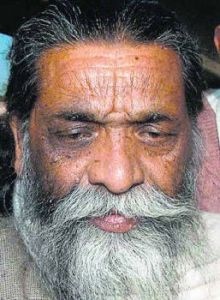Indian politicians convicted as legal system shows its teeth
Anywhere else, the conviction of a serving
government minister for murder might have been greeted with disgust. But in
India, the successful prosecution of a senior politician this week was welcomed
as a sign that politics might finally be getting cleaner.

Anywhere else, the conviction of a serving government minister for murder might have been greeted with disgust. But in India, the successful prosecution of a senior politician this week was welcomed as a sign that politics might finally be getting cleaner.
Shibu Soren, who resigned his post as coal minister last week, was sentenced to life imprisonment on Tuesday for conspiring to kidnap, sodomize and murder his former personal secretary.
It was the first time a sitting cabinet minister had been convicted of murder, and the verdict was widely seen as a long-overdue sign that the judicial system is ready to take action against politicians who break the law.
The day after Soren’s sentencing, a former Indian cricketer and opposition politician in the lower house of Parliament, Navjot Singh Sidhu, was sentenced to three years in prison after being found guilty of culpable homicide for beating a 64-year-old man to death in a fit of road rage in 1988.
Further evidence that India’s legal system is beginning to show its teeth to politicians accustomed to impunity came Wednesday, with a Supreme Court ruling that stressed that public servants would not automatically be protected by state immunity, and stated that law-enforcement bodies did not need to request special government “sanction” before prosecuting politicians.
The level of national cynicism about politicians’ criminal conduct can hardly increase. A Transparency International survey published last December revealed that 98 percent of respondents questioned in India said they thought political parties were corrupt.
Hey, we’re 75 places above India.
Posted: Sat - December 9, 2006 at 06:47 AM